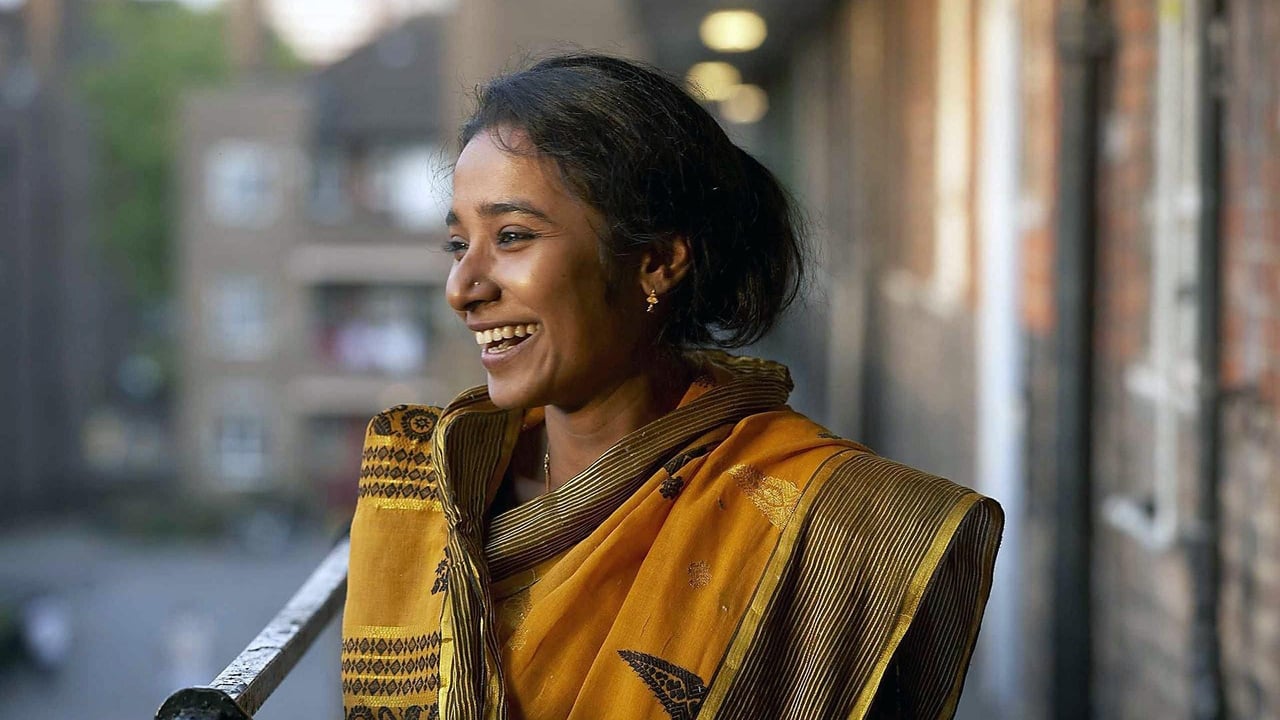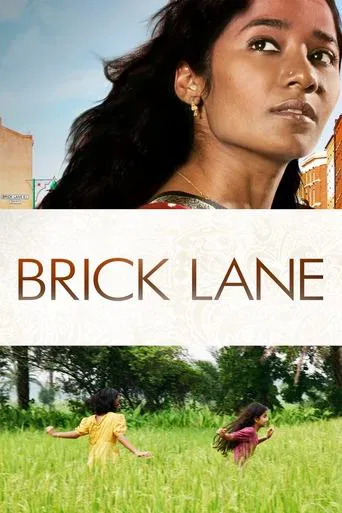

This movie, though honored in many reviews as a perfect view on the life of immigrants in England, sadly becomes a stew out of stereotypes along the storyline. There is just a very little look taken on the social life and integration in the community in Great Britain, but a boring and overdrawn kind of love story, rather making the movie boring than interesting. Unfourtnatly there are no key scenes opening the movie for the viewer. Minute after Minute you fade out of the storyline being annoyed about long, meaningless scenes and less outdrawn , and mostly not further noticed motives.All in all it is more a soft Romance than a reality displaying drama.
... View MoreThere's some good acting, the council estates near the street of the title are well-used and the natural tensions of life in the East End of London in the noughties are used sparingly. As a backdrop to a modern romance it's got perfectly good credentials. Yet I thought Sarah Gavron worked it all too hard trying to hammer out texture and depth as if on an anvil rather than in an editing suite. Mixed-focus and dreamy close-up shots are overused into which is inserted all manner of magic-realist daydreaming whose purpose is unclear. The story is affecting enough and should have been left - perhaps with the lovely, straightforward Bangladeshi flashbacks - to sell itself.Tannishtha Chatterjee is lovely as Nazneen, not overdoing self-pity at her lot and pacing her blossoming as romance beckons. Satish Kaushik is excellent as her husband, funny but capable of the wounded pride which locks Nazneen out. Christopher Simpson is a convincing, if generic lover. When the camera is employed to get all moody it captures the East End honestly and the costuming is predictably colourful. 4/10
... View More(contains spoiler)Okay let's see. First of all, I didn't think much of the book. The book was alright but the film is so bad that it doesn't even do justice to an okay book! The following is not a criticism of the book, rather a list of observations about the film only.1. In the book, Monica Ali (author of the book) did NOT even suggest that Nazneen was sexually frustrated before her extra-marital affair. Now, one might argue that it is safe to assume that Nazneen was indeed sexually frustrated given the circumstances and you know what, I would probably agree with that. HOWEVER, we got to ask ourselves that if it is so obvious and realistic for Nazneen to be sexually frustrated, then why didn't Monica Ali choose not to highlight it so much? She did not because she DID NOT WANT it to be just another story about a woman with an unhappy sex life which leads her to cheat on her husband etc. I guess we can give kudos to Monica Ali for that.But what about the movie? In the movie, the director has included a sex scene where she shows a completely disinterested Nazneen as her husband penetrates her. So what's the problem? The problem is that this scene gives out the impression that the dominant reason which drives Nazneen to be attracted to and have an affair with Karim is that she wants to satisfy her sexual desires. HOWEVER, that is NOT the main reason why Nazneen starts a relationship with Karim. (This brings me to the next point.) 2. Now, what is the real reason Nazneen is so attracted to Karim? Well, it is very clear in the book. Nazneen finds her husband Chanu to be a loser in life and an embarrassment. She finds her husband to be a total failure. She finds her husband to be a "weak man" and this bothers her. So when she comes across Karim, she is amazed by his smartness and his confidence. Nazneen thinks that Karim has a place in the world. She thinks Karim has great achievements (unlike her husband) and she immediately falls for it. However, as time passes, Nazneen realizes that Karim isn't really an accomplished man after all! In fact, if anything, he is much "weaker" than her husband. Therefore, it makes sense (in the book) when Nazneen tells Karim "We made each other up", in the crucial scene where she breaks the news to Karim that she doesn't want to marry him.HOWEVER, in the movie, when Karim asks Nazneen "What did you want?", the answer that Nazneen gives to Karim is "I just wanted to feel like I was at home." Now, first of all, this is NOT the reason why she got involved with Karim and secondly, how on earth would an extra-marital affair make Nazneen (a God-fearing Muslim) feel at home?? Seriously, what was the director thinking!! This is not even believable! And lastly, if all Nazneen wanted was to feel at home, then her previous comment "We made each other up" doesn't make sense.3. One of the most interesting aspects of the book was that Nazneen eventually starts to respect and perhaps even "love" her husband Chanu. Nazneen finally realizes that Chanu is actually a man of good heart and a loving and caring husband. She realizes that although Chanu can be quite self-delusional at times, he is not so stupid as she thought him to be. But most importantly, Nazneen also realizes that being a "strong man" isn't all there is to a person. And this is why, she starts to respect Chanu as a person and "love" him as her husband despite all his shortcomings.HOWEVER, the movie hardly focuses on this change that has been taking place inside Nazneen. It tries to settle it in only one scene where Chanu intellectually confronts Karim in the Islamic meeting and wins the battle. But unfortunately, it simply wasn't enough. And that is why, when Nazneen tells Chanu that she loves him, it comes out as insincere, feigned and unconvincing. It is a huge let-down when you compare it with the emotionally charged scene in the book.4. It is important to note that it wasn't only Nazneen who underwent a change. Chanu changed too! HOWEVER, the movie does NOT address this at all! Why exactly does Chanu want to leave England? What is it that is troubling him? Why can't he just "fit in" like many of his own generation? Unfortunately, the movie does NOT answer any of the above questions. Keep in mind that 9/11 only increased the tension Chanu was already feeling inside, it wasn't the cause. Chanu was struggling to reconcile the past with the present, the British colonial presence and plundering in the subcontinent with today's multicultural Britain. At the end, he realizes that he would never be able make England his home and he has to leave.5. If you've read the book, you know that Monica Ali did NOT want to make a case against arranged marriage. At the end of the day, Nazneen was certainly better off than her sister who ran off with a guy to have a "love marriage" and ended up being a prostitute. If anything, Monica Ali shows that it is possible for arranged marriages to work out and "love marriages" to go terribly wrong. Perhaps that wasn't even what she wanted to convey! Perhaps the book simply isn't about arranged vs love marriage after all! HOWEVER, the movie doesn't adequately focus on Nazneen's sister (hell it doesn't even do justice to Nazneen herself) and therefore, it once again comes off as one of those anti-arranged marriage movies.In short, the movie either ignores or fails to focus on the most interesting and unique aspects of the book. I would be pretty angry if I was Monica Ali.
... View MoreAs I started watching Brick Lane my heart soared. The beauty of its appreciation of nature (Bangladeshi scenes from the lead character's memory) reminded me of the masterpieces of Deepa Mehta if not of Satyajit Ray. It tells of a young girl whose father marries her off to an educated Bangladeshi back in London. Displaced from her homeland, her heart is full of secret sorrow until she finds herself attracted to a man younger than her husband and much closer to her own age. From that point she begins much soul searching, examining her own identity and place in the world."For us," says director Sarah Gavron, "'Brick Lane' as a title symbolises a sanctuary to successive waves of immigrants searching for home. That search, rather than the bricks and mortar of the street, is at the heart of the story." I admit that her description helps me to have a better view of the film but I wish it had been more apparent in the footage.A beautiful love story develops, with a subplot about resisting Islamic extremism. Yet I soon felt as if I were watching a kind of updated Jane Austen novel where the Brick Lane (East London) Bangladeshi community were used simply to provide a fresh plot device.I read some of the adverse comments from Brick Lane spokespeople that plagued the film's opening. I didn't feel I could relate to them. I found nothing offensive in the film. Except it seemed to me somehow a curiously British portrayal of Bangladeshis. There is plenty of reference to Bangladeshi or Muslim issues but authenticity seems a little uneven. Translation of a prayer is touching. But a reference to the Muslims that died in Partition (at the end of colonial rule) seems less heartfelt. The young daughter, who has only ever known British ways, is a very convincing character on the other hand. I am tempted to wish that the original prize-winning writer had focused her efforts more on the daughter, someone much closer to her own diaspora experience.As a film it succeeds. Exquisite photography and bundles of unarticulated emotion sweep us along at a heady pace. As a glimpse of another culture it is on less secure ground. The people claiming it misrepresented them may not have been statistically significant but why did it stir up so much trouble? Consider this. When Gurinder Chadha made Bride and Prejudice, she focused on the positive qualities of the two protagonists and cultures (India and America). When Deepa Meetha made Water, she focused on the positive strengths of the women on whose behalf the film was (in part) a protest. Sarah Gavron's heroine in Brick Lane, on the other hand, is almost an entirely a passive recipient of circumstance. We suspect she is a lovely person, but it needs more than some idyllic childhood memories of running through paddy fields to pinpoint the beauty within her. Much as the director's comment gives a higher purpose and reading to the film, it is not so obvious from viewing alone. Her comment about a sanctuary is a very spiritual one - perhaps even capable of uniting Muslims and Jews one day. But although her protagonist's husband does make reference to it at a Muslim meeting it could too easily be missed. Sadly, but not surprisingly, some audiences have reacted to the extremely personal (but more negative) images of her trapped and isolated woman.For a film with a serious intent, Brick Lane stops short at quality entertainment. Compare Mira Nair's epic The Namesake, which asks questions about identity and answers them. Or the way Satyajit Ray looks at home and identity through simple observation If Sarah Gavron had wanted to accomplish anything as grand as the search for sanctuary in a foreign land, her scope needed to be more ambitious.
... View More